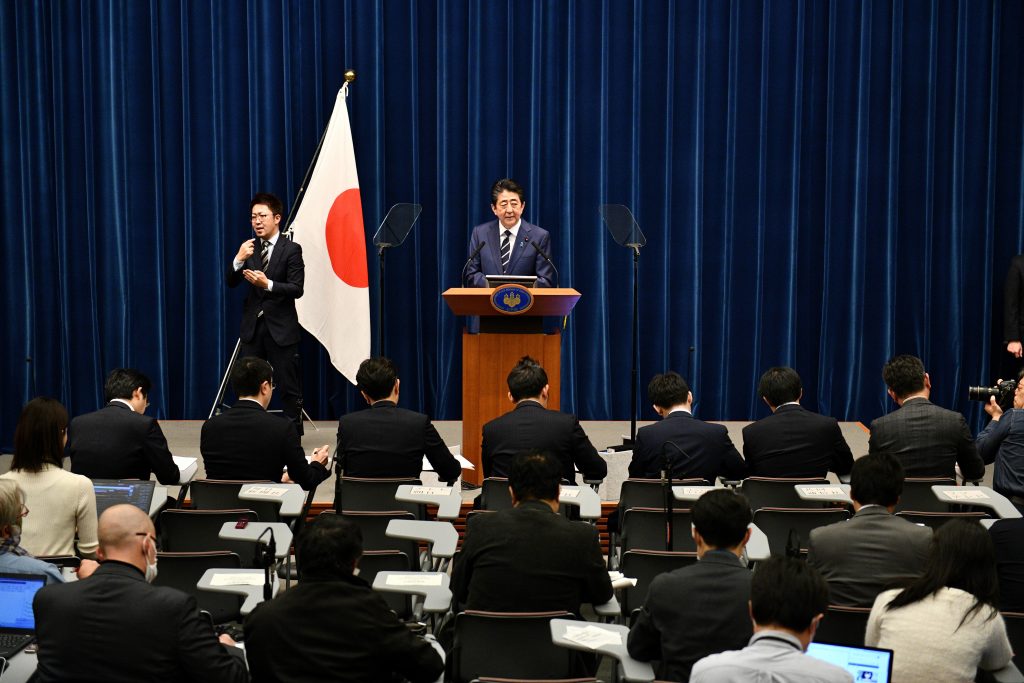
- ARAB NEWS
- 19 Apr 2024

Carla Chahrour
Japan was one of the first countries outside China hit by the COVID-19 coronavirus, with its first case reportedon January 16.
The number of cases quickly escalated after the outbreak on the British-flagged Diamond Princess cruise ship in early February, when the Japanese government admitted the ship to anchor in Yokohama.
A quarantine operation for the ship with around 3,700 people on board resulted in an unprecedented upsurge of transmission leading to the infection of 712 passengers.
Japanese officials have defended the quarantine by saying that precautions were taken to stop the disease from spreading on the ship.
Nevertheless, the public (people in Japan and abroad) grew increasingly wary of the rising number of infected people and heightened skepticism regarding Prime Minister Shinzo Abe’s leadership, according to several polls.
In a Kyodo News poll conducted in mid-February, after Japan decided to keep thousands of passengers and crew confined on the Diamond Princess cruise ship for a two-week quarantine, the support rate for Abe's Cabinet marked the sharpest fall in nearly two years, down 8.3 points to 41.0 percent. The disapproval rate stood at 46.1 percent.
In another news poll conducted by Japan's national broadcasting organization NHK during early March, among 1,240 respondents, showed that the approval rate of Abe ’s cabinet in Japan is 43 percent, declining two points from the previous month, while the disapproval rating rose four points to 41 percent.
Since the previous opinion poll in mid-February, Abe's administration have taken steps to combat the spread of the virus, including requesting the cancellation of large events, nation-wide school closures until the start of the new academic year in April to contain the spread of the virus, two stimulus packages, each worth ¥430 billion, allocated to small hospitals preparing to accommodate a large number of patients, small to medium-size businesses, and working parents affected by school closures that need to temporarily leave in order to take care of their children, as reported by JIJI Press.
Abe has also introduced zero-interest loans for companies struggling due to a sharp decrease in sales, as part of a government funding package, and plans on offering financially struggling companies ¥1.6 trillion in loans, according to Japan Times.
While Abe has faced criticism regarding the leadership’s lack of readiness to plan, prepare and subsequently mitigate response strategies during times of crisis, he appears to have regained public trust withthe recent measures implemented by the administration.
Asurvey conducted by Kyodo News between 14 – 16 March, among 1,032 respondents showed that Abe’s Cabinet’s approval rating has risen to 49.7 percent in mid-March, from up from from 41.0 percent in February.
Despite contrasting public opinions regarding the governments efficiency in responding to the crisis, the survey showed that 48.3 percent of respondents said that the government’s measures against the virus are appropriate, while only 44.3 percent disapproved of them.
Additionally, of those who approved of the appropriateness of the measures implemented by the government, 53 percent said that it was because “there were no other appropriate choice besides Abe.”